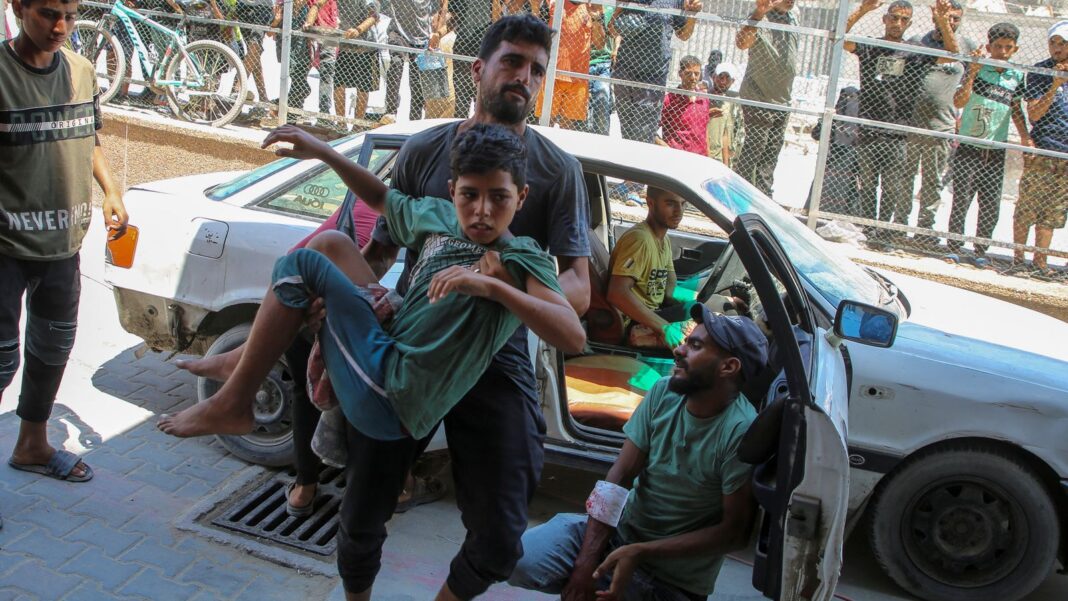A round of talks aimed to restore peace in Gaza will take place in Qatar on Thursday, with a deal the likeliest way of preventing a wider conflict from breaking out in the Middle East.
Officials from the US, Qatar and Egypt will be meeting an Israeli delegation in Doha in the latest efforts by international mediators to strike a peace deal between Israel and Hamas, who have been at war for the past 10 months.
According to Hamas-run health authorities in Gaza, the number of people killed in the besieged enclave has now surpassed 40,000. A Hamas representative told Sky News the militant group will not be taking part in the talks.
In a statement earlier this week, Ahmad Abdul Hadi said Hamas was not against ceasefire talks “in principle”.
However, he said it would not participate this week because Israel’s Prime Minister Benjamin Netanyahu “is not interested in reaching an agreement that ends the aggression completely”.
Please use Chrome browser for a more accessible video player
4:22
Sky’s Alistair Bunkall explains Iran’s missile and nuclear capabilities
Read more:
Iran’s president tells PM retaliation against Israel ‘is a right’ during rare call
“Rather he is deceiving and evading and wants to prolong the war, and even expand it at the regional level, and thus he uses negotiations as a cover to continue his aggression against our people and commit more massacres against them,” he said.
Hamas still has its chief negotiator Khalil al-Hayya based in Doha and the group has open channels with Egypt and Qatar, meaning progress could still happen.

Keep up with all the latest news from the UK and around the world by following Sky News
Mediators have spent months trying to hammer out a three-phase plan in which Hamas would release scores of hostages captured in the 7 October attack that triggered the war in exchange for a lasting ceasefire, the withdrawal of Israeli forces from Gaza and the release of Palestinians imprisoned by Israel.
A ceasefire in the densely populated enclave is seen as critical to preventing a wider conflict in the Middle East. Senior Iranian officials were reported by Reuters as saying only that would deter Iran from directly retaliating against Israel following the assassination of Hamas leader Ismail Haniyeh on its soil.
Israel has neither confirmed nor denied the assassination of the then main Hamas negotiator while he was visiting Iran.
Tensions between Israel and Iran, which backs both militant groups Hezbollah in Lebanon and Hamas in Gaza, had already heightened after a top Hezbollah commander was killed in an Israeli airstrike within 24 hours of Haniyeh’s death.







